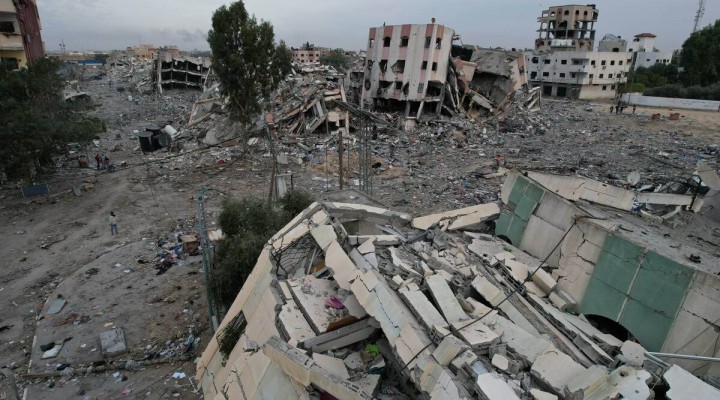Putting a spin on ‘obstacles’ to peace in Palestine

It took the EU far too long to connect the dots between besieged Gaza and the West Bank, after creating political divisions that pitted the occupied Palestinian territories against each other in terms of political narratives. EU Foreign Affairs Chief Josep Borrell shifted attention to the occupied West Bank during the Munich Security conference last month, as state and settler violence in the area increased under cover of Israel’s genocide in Gaza. And, of course, the attention does not seek any benefit for Palestinians; it simply aims to keep the defunct two-state narrative relevant in diplomatic rhetoric.
“We have to end the war in Gaza, but nobody has talked a lot about the West Bank,” said Borrell. “And the West Bank is the real obstacle for the two-state solution. The West Bank is boiling. The level of violence against the Palestinians has been increasing since the seventh of October.”
Presumably Borrell’s choice of word – obstacle – refers to the repercussions of Israeli state and settler violence against the Palestinian people. However, not so long ago, the occupied West Bank was the favourite area for EU diplomats and their state-building efforts, no matter how delusional the concept was and remains. If Gaza has long been discarded, and the occupied West Bank is now “the real obstacle”, how does Borrell conceptualise the defunct two-state narrative?
Is it an admission by default that the two-state paradigm is obsolete?
And if the EU still has its sights set on the occupied West Bank in terms of state-building, why does Borrell not make it clear that Israel as the settler-colonial state is the actual obstacle to any concept of a Palestinian state? Why shift the blame onto the colonised Palestinians, when they are the unwilling victims of Israel’s colonial violence, which is also funded by the EU?
“If now the UN agency for Palestinian refugees [UNRWA] has to stop supporting the Palestinian people in the West Bank, we could be on the eve of a greater explosion,” added Borrell. Besides Israel, which has clearly stated its intention to eliminate UNRWA, several EU countries have suspended their donations to the agency. The EU will uphold Israel’s fabricated security narrative even if funding is resumed. And yet, according to Borrell, the occupied West Bank is an obstacle to the two-state paradigm, not Israel and its allies which have rendered the concept completely defunct and yet persist in pushing it to prevent Palestinians from exercising their legitimate right to resist Israeli occupation-colonialism.
Even if UNRWA can continue its operations with Palestinians in the occupied West Bank, colonialism will still exist. Is Borrell advocating to maintain the status quo of humanitarian aid to keep Palestinians quiet while they face Israeli state and settler violence? There is no correlation between the two: Israeli settlers — illegal under international law (not that the EU or anyone else pays much heed to that fact) — will continue to encroach upon Palestinian land and attack Palestinians, whether or not UNRWA is able to continue its humanitarian operations.
Or has Borrell suddenly realised that all the violations to which the EU has turned a blind eye have now accumulated within the framework of Israel’s colonial ethnic cleansing? Too many decades too late, and yet, Borrell’s choice of words still fails to place Israel as the instigator of colonial violence against the Palestinian people, and the real “obstacle” to a Palestinian state.
https://www.middleeastmonitor.com/20240314-putting-a-spin-on-obstacles-to-peace-in-palestine/
 TheAltWorld
TheAltWorld 
0 thoughts on “Putting a spin on ‘obstacles’ to peace in Palestine”